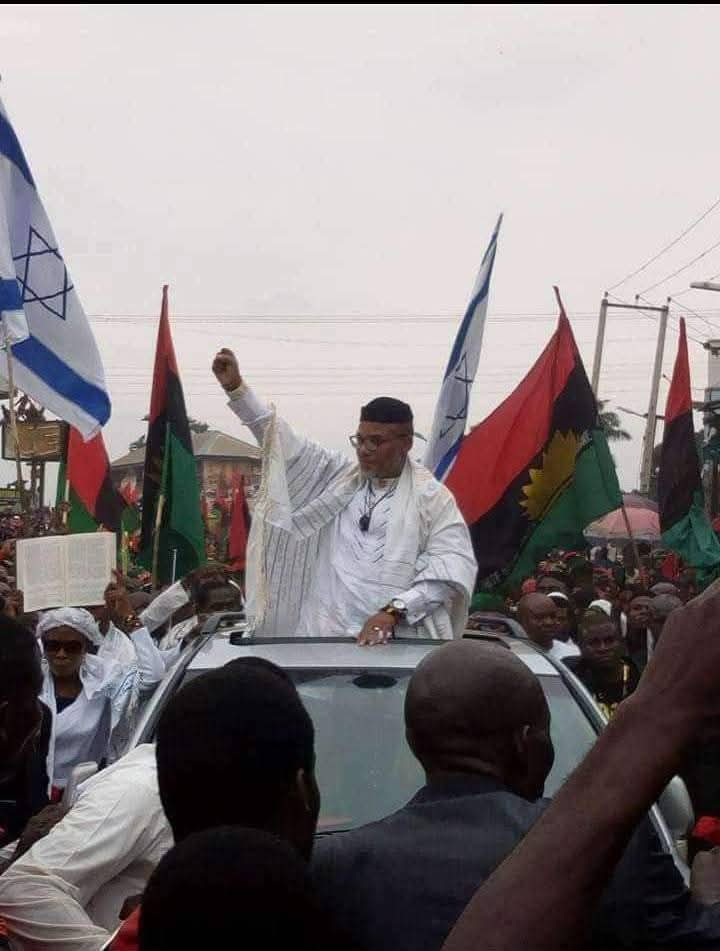In a dramatic twist on Friday, a key prosecution witness in the trial of Nnamdi Kanu, leader of the Indigenous People of Biafra (IPOB), acknowledged that Kanu’s statement was obtained without the presence of his legal counsel, raising fresh doubts over the credibility of the Nigerian government’s case.

The witness, Identified only as PWAAA, is an operative with the Department of State Services (DSS) and was questioned by Kanu’s lead counsel, Chief Kanu Agabi, SAN, before Justice James Omotosho of the Federal High Court in Abuja. During cross-examination, Agabi directly asked whether Kanu’s statement was recorded in the presence of his lawyer. To the courtroom’s surprise, the witness admitted, “His statement was taken without his lawyer.”
This admission casts serious doubts on the integrity of the evidence presented against Kanu, whose legal team has long argued that the charges against him are politically motivated and linked to his peaceful calls for Biafran self-determination.
The witness, who had been part of the 2015 operation that led to Kanu’s arrest in Lagos, further revealed that no weapons or items of violence were recovered from Kanu during the arrest. When asked about any incriminating items found on Kanu, the witness simply said, “None.”
The testimony continued with further revelations that the items seized from Kanu included electronic devices, such as phones, laptops, and modems, along with personal effects like perfumes, clothes, and documents related to IPOB. However, none of these items were classified as evidence of terrorism. The DSS operative also admitted that he did not analyze the seized items, explaining that his role was limited to arrest and interrogation. The analysis of Kanu’s phone was conducted, but the report was deemed “immaterial” and not submitted to the court.
In a shocking turn, the witness also acknowledged that in the ten years since Kanu’s arrest, no other individuals have come forward to accuse him of any criminal activity. The person arrested alongside Kanu was found without any incriminating items and was not linked to terrorism in any way.
Agabi, seeking to challenge the credibility of the prosecution’s case, repeatedly pointed out the witness’s lack of concrete knowledge. He pressed the witness about the broader context of Biafran agitation, asking, “Do you agree that in the entire nation, the only person standing trial for the agitation of Biafra is this defendant?” The witness responded, “I do not have information about that.” When pressed about others involved, the witness mentioned Simon Ekpa, but admitted his knowledge was based on “social media,” and he didn’t know whether Ekpa was facing trial alongside Kanu.
The courtroom was left stunned by the witness’s repeated answers of “I don’t know” and “I wasn’t tasked with that,” which only served to strengthen the defense’s argument that the prosecution’s case is weak.
Kanu, who has been in DSS custody since his controversial extradition from Kenya in 2021, appeared in court with a formidable legal team, including six Senior Advocates of Nigeria. His legal team maintains that the charges against him are politically motivated and part of an ongoing attempt to silence his advocacy for Biafran independence.







